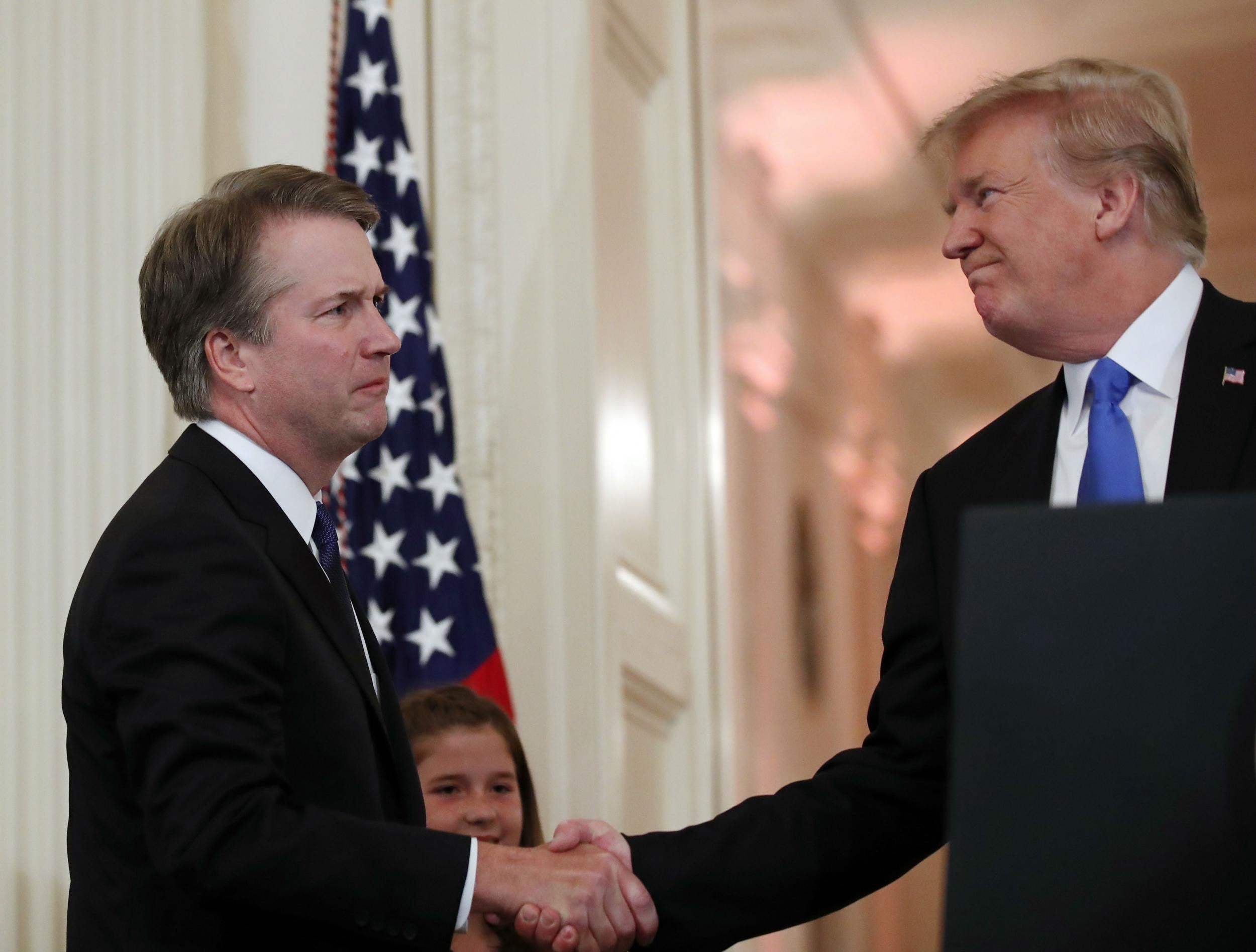Brett Kavanaugh: How is the US Supreme Court nomination process supposed to work?
Senate Judiciary Committee forced to prolong confirmation hearing to resolve concerns over trio of historic sexual assault allegations against presidential nominee
The unexpected trio of historic sexual assault allegations against Brett Kavanaugh, Donald Trump's nominee as new US Supreme Court justice, has hugely prolonged his confirmation hearing.
Unless concerns about the candidate's past can be resolved to the satisfaction of the Senate Judiciary Committee interviewing him, his appointment to the bench cannot proceed.
Following the dramatic testimony of his first accuser, Dr Christine Blasey Ford, Judge Kavanaugh's nomination to succeed the retiring Anthony Kennedy hangs in the balance.
But how is the process supposed to work when it runs smoothly?
How is a Supreme Court justice appointed?
Article II, section 2 of the US constitution places an obligation on the president to submit a preferred candidate: “[The president] shall nominate, and by and with the Advice and Consent of the Senate, shall appoint Ambassadors, other public Ministers and Consuls, Judges of the Supreme Court.”
The nominee does not need any special qualifications to be considered, not even a law degree or US citizenship.
The position is a job for life, intended as such to shield the justices from the need to seek re-election and therefore from the influence of lobbyists and special interest groups bearing the promise of campaign donations.
Once the president has announced the name, it falls to the Senate Judiciary Committee to consider their suitability.
The committee then vets the potential justice, reviewing their professional and personal background and interviewing them on their constitutional views during a hearing that can take a matter of hours or even days. The surprise allegations against Mr Kavanaugh have of course meant this stage of the process has been drastically extended in this instance.
A vote is finally held to decide whether the candidate will be rejected or approved.
Has any candidate ever been rejected before?
A famous example of a "no vote" occurred in 2005 when George W Bush’s choice, Texas lawyer Harriet Miers – then serving in Washington as his White House special counsel – was spurned on the grounds that her written responses to questioning were “incomplete to insulting”, in the judgement of Democrat Patrick Leahy.

She was privately told she had “flunked” and publicly dismissed as little more than a “crony” of the Bush family and satirised savagely as such by political cartoonists.
If this eventuality occurs, the president is then invited to choose a new nominee and the whole process starts over.
What happens next?
Should Judge Kavanaugh be cleared of wrongdoing and approved, the decision will then fall to the Senate, which will hold its own hearing and vote on his suitability. The House’s decision is final.
The Republicans currently have a slim 51-49 majority in the Senate, reduced from the 54-45 it held when Mr Trump’s first Supreme Court nominee, Neil Gorsuch, was elected to replace the late Antonin Scalia in April 2017.
This places particular emphasis on two Republicans – Senators Susan Collins of Maine and Lisa Murkowski of Alaska – both of whom support a woman’s right to an abortion and will be seeking assurances that Mr Kavanaugh has no ambition to overturn the Roe v Wade decision establishing abortion rights, in spite of Mr Trump’s 2016 pledge that he would be “putting pro-life justices on the court.”
The recent death of Arizona senator John McCain places further pressure on the Republican cause in the face of minority leader Chuck Schumer’s Democrats presenting a united front opposing Judge Kavanaugh.
The latter is being guided through all of this by Arizona Republican Jon Kyl, an experienced ex-senator serving as his “sherpa” through this treacherous terrain.
The trek can be a long one. In 1916, it took the Senate 125 days to appoint Kentucky lawyer Louis Brandeis to the Supreme Court.
Join our commenting forum
Join thought-provoking conversations, follow other Independent readers and see their replies
Comments
Bookmark popover
Removed from bookmarks